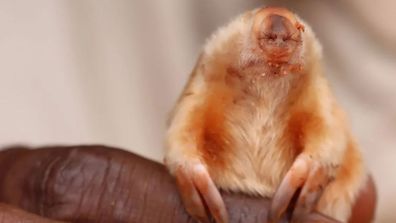Marine biologist Nicolas Lubitz was left stunned when he saw the predator regurgitate an entire echidna off the Queensland coast during a marine research project two years ago.
The former James Cook University PhD student shared the story today ahead of the release of a research project’s findings later this year.
“We were quite shocked at what we saw. We really didn’t know what was going on,” Lubitz said.
He and other researchers from the university were tagging marine wildlife off the coast of Orpheus Island off North Queensland in May 2022 when they made what is believed to be a world-first discovery.
“When it spat it out, I looked at it and remarked, ‘What the hell is that?’ Someone said to take a picture, so I scrambled to get my phone.
“I managed to only get one picture, but you can see the outline of the echidna in the water.”
Lubitz said it was likely the shark nabbed the echidna as it swam in the shallows off the island or even between islands, which the creatures are known to do.

The dead echidna was still whole when it was regurgitated, suggesting it was only a recent kill by the three-metre-long shark.
“It was a fully intact echidna with all its spines and its legs,” Lubitz said.
“It was a decent-sized tiger shark but it wasn’t massive.
“It’s very rare that they throw up their food but sometimes when they get stressed they can.”
“In this case, I think the echidna must have just felt a bit funny in its throat.”
Known for their voracious appetites, tiger sharks have been documented swallowing seabirds, tyres, vehicle number plates and even a small television screen.
The James Cook University researchers were part of the Queensland Integrated Marine Observing System Acoustic Telemetry Array Project, which involved researchers tagging marine life with acoustic and satellite trackers, to gather data on marine life.


